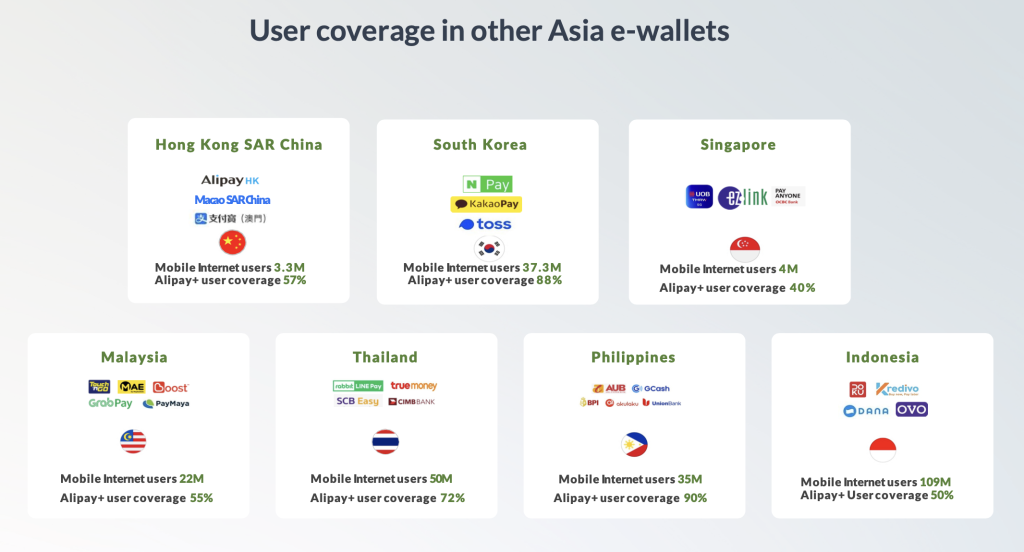
The tourism industry has experienced remarkable growth over recent years, with millions of tourists traveling all over the world. As the sector continues to grow, it is becoming increasingly necessary for hotels and restaurants to adapt to the changing needs and preferences of their diverse clientele.
One such trend in Chinese outbound tourism is the growing popularity of mobile payment platforms. In today’s digital marketing in China age, payment methods have evolved significantly, offering greater convenience and security to both consumers and businesses. One of these payment methods that has gained immense popularity worldwide is Alipay.
In this article, we present an overview of this payment method, as well as its various functions and advantages, and we will see how the incorporation of this payment method can revolutionize the hospitality industry, especially when catering to Chinese tourists and marketing businesses on China.

1. What is Alipay?
Alipay, developed by Alibaba, is one of the leading mobile payment platforms worldwide, having gained immense popularity.
History and growth of Alipay
Alipay was launched in 2004. Initially, It served as an escrow service for online transactions within Alibaba‘s e-commerce platforms. Over time, it expanded its scope to become a full-fledged digital payment platform.
With a user base of millions in China and around the world, it has become the go-to payment method for Chinese travelers. It can provide a great incentive to attract Chinese tourists as well as increase the presence of your business on online travel agencies (OTAs) in China, the most popular of which are Fliggy and Ctrip.
Main features and functionalities of Alipay
Alipay offers a wide variety of features and functionalities, such as online payments, mobile payments, bill payments, money transfers and even investment and wealth management options. Its user-friendly interface and seamless integration with merchants and service providers make it the best choice for Chinese users.
The security of this payment method for both businesses and customers is another significant aspect. The platform employs advanced encryption technologies and authentication measures to protect transactions, offering high confidence to users.
Comparison with other digital payment methods
When comparing Alipay to other digital payment methods, such as credit cards or mobile wallets, this payment method stands out for its widespread adoption in China and its extensive features tailored to merchants. It also offers unique solutions for those looking to attract Chinese tourists to their hotel and restaurant.
In this regard, here is how to prepare your hotel for Chinese tourists and a strategy for marketing your restaurant on Little Red Book.
2. How to implement Alipay in your business
Integrating Alipay into existing payment systems is a simple process.
Account configurations
The configurations that merchants have at their disposal to set up the account are:
- Online integration
- Point of sale integration
- App integration
- External payment processors
Available payment methods
- User scans QR code
- Merchant scans the customer’s QR code

Source: PayXpert
3. How to implement Alipay in your business
Implementing Alipay as a payment method can bring several advantages to hotels and restaurants:
Convenience and ease of use
Alipay offers a streamlined payment experience, allowing users to make transactions with just a couple of taps on their smartphones. It eliminates the need for cash and cards, making payments quick and easy, allowing Chinese tourists to settle transactions quickly and effortlessly.
This convenience can increase customer satisfaction and lead to positive recommendations on Chinese social networks such as Little Red Book or WeChat.
Security and fraud protection measures
This payment method prioritizes security and employs measures to protect user and business information and transactions, ensuring secure payments and reducing the risk of fraudulent activities.
Integration with various platforms and services
Alipay integrates seamlessly with a wide variety of platforms and services, such as e-commerce websites, mobile apps and even physical stores.
This versatility allows hospitality businesses to engage more Chinese customers and improve the overall shopping experience. Therefore, by accepting this payment system, hospitality businesses can attract more Chinese tourists who strongly prefer to use this payment method.
Acceptance of Alipay can set some hospitality businesses apart from others and position them as preferred destinations for Chinese travelers.
4. Alipay outside of China
Ant Group, the parent company of Alipay, is extending its global reach by incorporating 10 major e-wallets from various Asian countries. This move aims to facilitate travel and spending for foreigners in the People’s Republic of China and Chinese travelers. The “Alipay+” cross-border payments program now includes support for seven e-wallets from Macau, Mongolia, Singapore, South Korea, and Thailand, in addition to the three services from Hong Kong, Malaysia, and South Korea initially included at the program’s launch in 2022.
5. Alipay+: A new and improved version with even more advantages
While Alipay is a service for Chinese consumers only, Alipay+, launched by technology giant Ant Group, is an innovative solution that combines global cross-border mobile payments and digital marketing solutions to connect merchants and consumers around the world.
Choosing this platform will allow you to have a single integration to accept all Alipay+ compatible wallets to increase efficiency and reduce costs.


Source: PayXpert
6. Conclusion
In conclusion, Alipay has established itself as a leading payment method, revolutionizing the way transactions are conducted in China and gaining recognition worldwide.
Its convenience, security, integration capacity and compatibility with cross-border transactions make it a very interesting option for companies, especially for those wishing to attract Chinese tourists.
To this end, enlisting the help of a social media agency specializing in Chinese outbound tourism and influencer marketing in China can be key.
As Alipay continues to expand its reach and explore new opportunities, the future prospects for this innovative payment solution are promising. Check more about our services in this field.
FAQ
Frequently Asked Questions about Alipay
Why is Alipay the ideal payment method for Chinese tourists?
Alipay is the ideal payment method for Chinese tourists because it offers convenience, familiarity and security. Chinese tourists are already accustomed to using Alipay in their daily lives, so it will be easy for them to use it when traveling abroad.
How can I implement Alipay in my business?
Integrating Alipay into existing payment systems is a straightforward process. There are several configuration options available, such as online integration, POS integration, app integration and the use of external payment processors.
Can I integrate Alipay into my POS system?
Yes, Alipay can be integrated into many existing POS systems. This allows businesses to accept Alipay payments directly through their POS system, streamlining the payment process for both Chinese customers.
What are the advantages of accepting Alipay in hotels and restaurants?
The implementation of Alipay as a payment method offers several advantages to hotels and restaurants. Alipay offers convenience and ease of use to users, allowing them to make quick and easy transactions with just a few taps on their smartphones. In addition, it prioritizes security and employs measures to protect users’ and businesses’ information and transactions. Alipay also integrates with various platforms and services, allowing hospitality businesses to expand their customer base and enhance the overall shopping experience, thus attracting more Chinese tourists who prefer to use this payment method.

